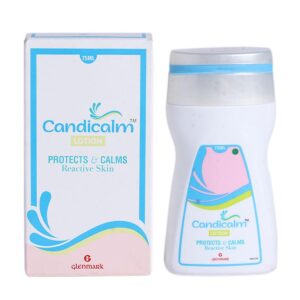CALAMINE + ALOE VERA + LIGHT LIQUID PARAFFIN
Calamine: Calamine is a medication that is commonly used as a topical treatment for various skin conditions, such as itching, sunburn, rashes, and insect bites. It is available over-the-counter and can be found in the form of lotions, creams, and gels.
The main active ingredient in Calamine is zinc oxide, which has soothing and anti-itch properties. When applied to the skin, Calamine acts as a mild astringent, creating a cooling sensation that helps to ease itching and inflammation. It also forms a protective barrier on the skin, which can help to prevent further irritation.
The exact dose and frequency of Calamine application may vary depending on the specific condition and the product being used. It is important to read and follow the instructions provided on the packaging, or to consult a healthcare professional for guidance. Typically, Calamine is applied directly to the affected area as needed.
Calamine is generally considered safe for topical use, but like any medication, it can have some side effects. The most common side effect is mild skin irritation, which may include redness, itching, or stinging. In rare cases, some individuals may experience an allergic reaction to Calamine.
It is important to note that Calamine is for external use only and should not be ingested. Additionally, it should not be applied to broken skin or open wounds, as this may increase the risk of infection. If there is no improvement in symptoms or if they worsen after using Calamine, it is recommended to seek medical advice.
Aloe Vera: Aloe vera is a natural plant-based drug used for medicinal purposes. It is commonly used topically in the form of gel or cream for its healing properties. Aloe vera contains several active compounds such as polysaccharides, anthraquinones, and vitamins, which contribute to its therapeutic effects.
The primary use of aloe vera is in the treatment of various skin conditions, including burns, wounds, sunburns, and dermatitis. It has moisturizing and soothing properties that help to reduce inflammation, promote healing, and relieve symptoms such as itching and pain.
The exact mechanism of action of aloe vera is not fully understood. However, studies have shown that it has anti-inflammatory, antimicrobial, and antioxidant effects, which contribute to its healing properties. Aloe vera also enhances collagen synthesis and increases the production of hyaluronic acid, which improves wound healing.
The dose of aloe vera can vary depending on the specific product and the severity of the condition being treated. It is typically applied topically to the affected area, following the instructions provided on the product label. Aloe vera gel or cream should be applied gently to clean, dry skin and allowed to absorb.
Aloe vera is generally safe when used topically. However, some individuals may experience mild side effects, including skin irritation, redness, or allergic reactions. It is important to conduct a patch test before applying aloe vera to a larger area of the skin to check for any adverse reactions. In rare cases, prolonged or excessive use of aloe vera can lead to contact dermatitis or hypersensitivity reactions.
It is important to note that aloe vera should not be ingested, as it may have laxative effects and interact with certain medications. If used orally, it should be done under the guidance of a healthcare professional.
Overall, aloe vera is a safe and effective topical treatment for various skin conditions. However, individuals with known allergies or sensitivities should exercise caution and consult a healthcare professional before using aloe vera products.
Light Liquid Paraffin: Light Liquid Paraffin, also known as liquid paraffin oil or mineral oil, is a medication that is frequently used as a stool softener and lubricant. It helps to relieve and prevent constipation by facilitating smooth passage of stools.
The mechanism of action of Light Liquid Paraffin involves the formation of a thin film on the surface of the stool, which reduces water absorption and creates a lubricating effect. This helps to soften the stool, making it easier to pass through the digestive tract.
The usual dose of Light Liquid Paraffin may vary based on the individual and the severity of constipation. Typically, it is recommended to take 15-45 mL (1-3 tablespoons) orally on an empty stomach at bedtime, followed by a sufficient amount of water. It is essential to carefully follow the dosage instructions provided by your healthcare professional or the medication label.
While Light Liquid Paraffin is generally considered safe when used as directed, it may cause some side effects. These side effects are usually mild and temporary, and they may include bloating, diarrhea, stomach cramps, or nausea. In rare cases, aspiration pneumonia may occur if the liquid accidentally enters the lungs. If any severe side effects or allergic reactions, such as rash, itching, swelling, or breathing difficulties, occur, immediate medical attention should be sought.
It is important to note that Light Liquid Paraffin should not be used if you have certain medical conditions, such as intestinal blockage, appendicitis, inflamed bowels, or any other intestinal disorder. Additionally, it is advised to avoid its use during pregnancy and breastfeeding unless recommended by a healthcare professional.
As with any medication, it is advisable to consult with your healthcare provider before starting Light Liquid Paraffin or if you have any concerns or questions about its use.

